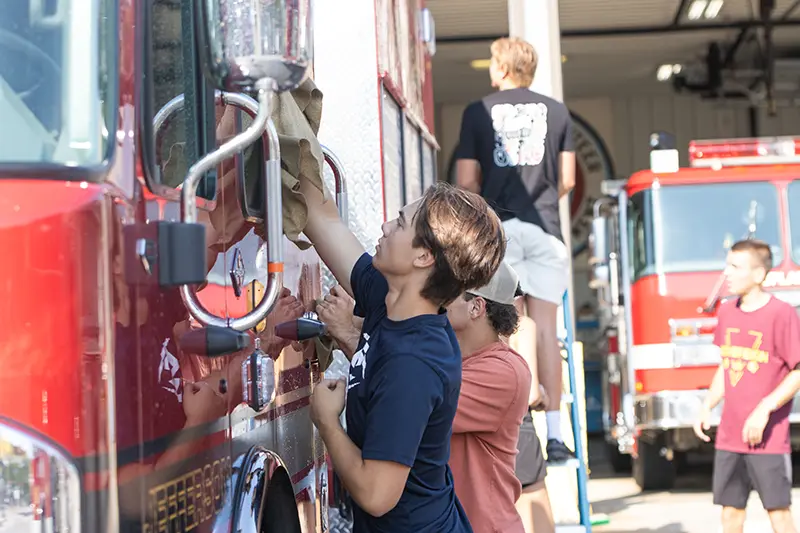-
-
- Financial Aid
- Financial Aid
- Scholarships
- Loans
- Grants
- Federal Work Study
- Additional Resources
-

Taylor University received a $50,000 Capacity Building Grant from the Educating Character Initiative (EIC) out of Wake Forest University’s Program for Leadership and Character. Taylor is one of 42 institutions to be awarded the grant, alongside schools such as Cornell University, Duke University, and Gordon College.
The Capacity Building Grant is a planning grant that seeks to support universities and colleges as they formulate methods of character development. The grant is a steppingstone toward the ECI’s Institutional Impact Grant, which funds the implementation of ideas for student virtue formation.
Funded by the generosity of Lilly Endowment Inc., the ECI was created by Wake Forest’s Program for Leadership and Character and serves to foster character growth in higher education by providing universities and colleges with the necessary resources for building character throughout their student body.

Scott Moeschberger, Director of Taylor University’s Honors Guild and one of the project’s co-principal investigators, explained that the grant will be applied within the context of the Honors Guild.
Starting with one section of Taylor’s student population, Moeschberger hopes to develop methods of building character that will someday apply university-wide.
“Looking at how we can work within Honors, a smaller subset of the university, the idea is that character development happens inside of a community.” Moeschberger said. “We picked Honors as a way to pilot and introduce some of the ideas, trying to infuse them in our colloquiums for next year.”
Colloquiums are a one-credit hour, discussion-based course taken by Honors students. Colloquiums for the Fall 2025 semester include Monasticism(s) Old and New: Benedict and Bonhoeffer and Technology, Personhood, and Community.
With the funding from this grant, Moeschberger hopes to enable the faculty members teaching colloquiums to delve into both historic and contemporary conversations surrounding character development.
Taylor faculty members will participate in workshops and research throughout the school year as part of this grant.
Faculty members may also attend a conference as part of this grant, and speakers, including Michael Lamb, Executive Director of the ECI, will visit Taylor’s campus to discuss topics surrounding character formation.

Kris Johnson, Director of Grants & Sponsored Programs at Taylor University, believes that exploring character development within the colloquia will reveal the community aspect of cultivating virtue.
“Taylor does community really, really well,” she said, “and many places are exploring virtue formation as an individual endeavor. However, at Taylor, we're very invested in doing things as a community and supporting one another through them. So I think the colloquium setup really allows for some interesting conversations to take place.”
The theme of community is also what set Taylor’s proposal apart, Johnson added. As a university committed to cultivating a student body that does “life together,” community is an essential part of student character development.
Koert Verhagen, Assistant Professor of Philosophy and Religion, explained that a lot of American higher education has focused on training students in career-centered skills at the expense of character formation.
“What's best for society is not just having people who are really good at the jobs that they're hired to do, but people who are really good, full stop,” Verhagen explained. “And in order to have that, the virtue concerns and character formation have to be at the forefront in educational settings.”
However, while many secular institutions approach virtue development from a self-centered perspective, Taylor’s reason for cultivating character is to glorify God. It’s a transformation and renewal of our minds, as Romans 12:1-2 calls us to.
The project has a long-term goal to create methods of character cultivation that can be applied across the University and to other college campuses across the nation.
“How do we build character? How do we form virtues together?” Johnson said. “There are many different pieces that can come out of this, and it is exciting to see what some of the outcomes might be.”